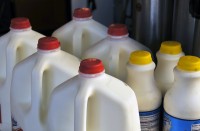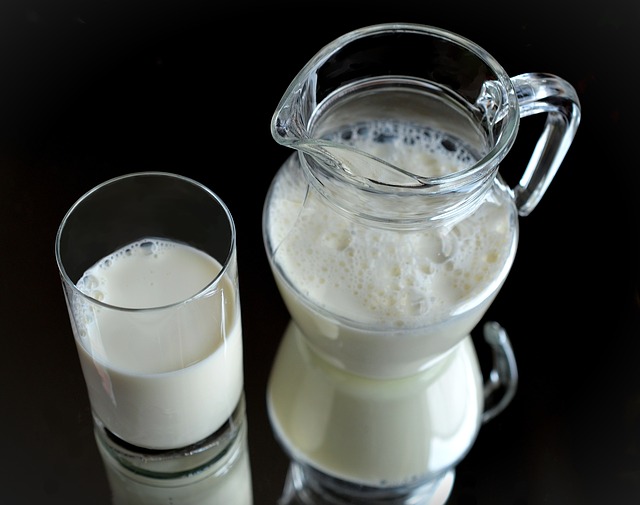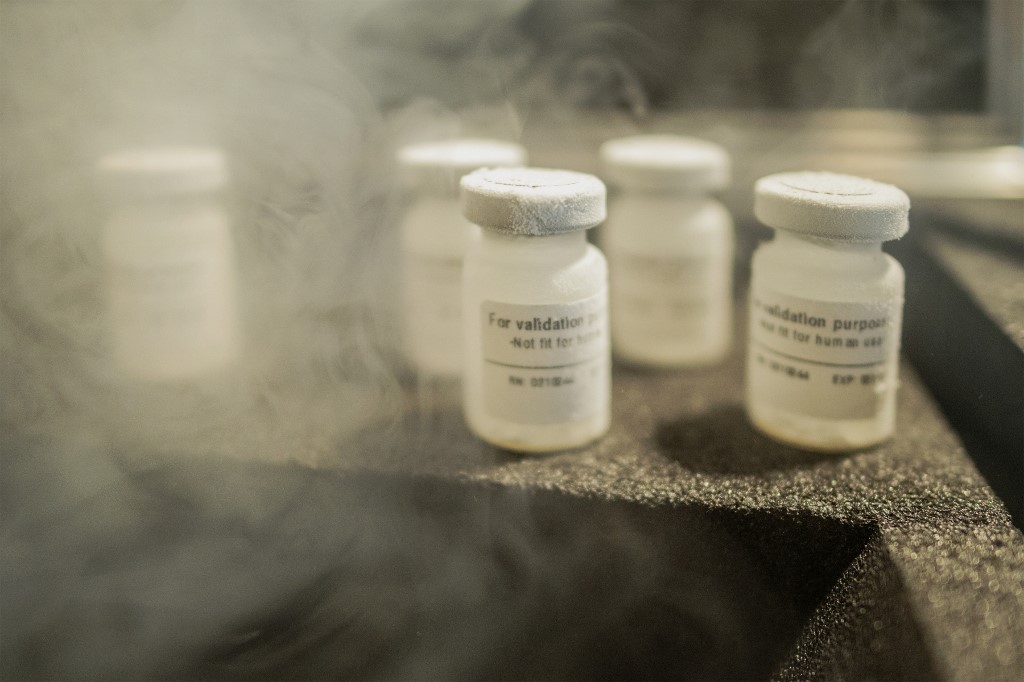
JOHANNESBURG, South Africa (AFP) — A South African company is seeking to help solve the logistical nightmare of keeping Covid-19 vaccinations at the ultra-cold temperatures necessary as they are shipped across the continent.
Johannesburg-based natural gas producer Renergen is developing an ultra-cold biologic transport freezer for the task as countries throughout Africa plan for rollouts of comprehensive vaccination programmes.
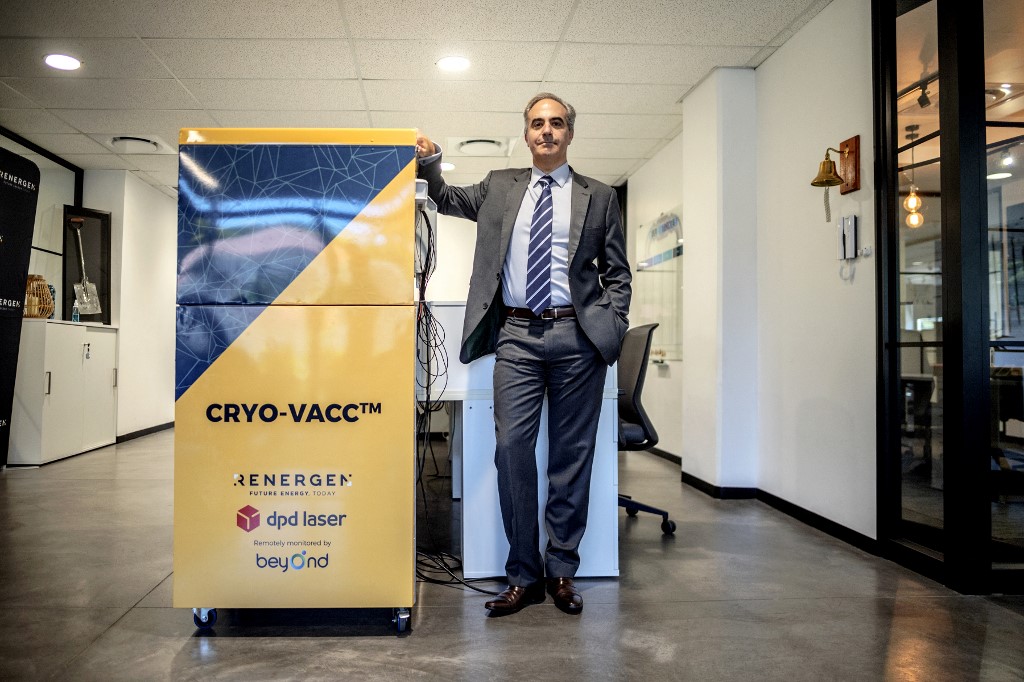
The vaccines developed jointly by US pharmaceutical giant Pfizer and Germany’s BioNTech must be stored at -70 degrees Celsius (-94 degrees Fahrenheit), a far cry from what much of rural Africa can support.
Wealthier nations have capitalised on their vast storage and distribution infrastructure to amass stockpiles of shots from those companies.
Renergen’s design will use helium to transport vials by air and nitrogen by road, keeping them at between -150 to eight degree Celsius, its CEO Stefano Marani said Wednesday.
The storage case, called Cryo-Vacc, can operate without power supply for more than 25 days, he said.
Vaccines are often transported in Africa in dry ice that usually last about only three days.
Marani said their biggest container can hold between 5,000 and 6,000 vials.
The aluminium cases are also equipped with tracking devices and monitors to evenly distribute the freezing temperatures.
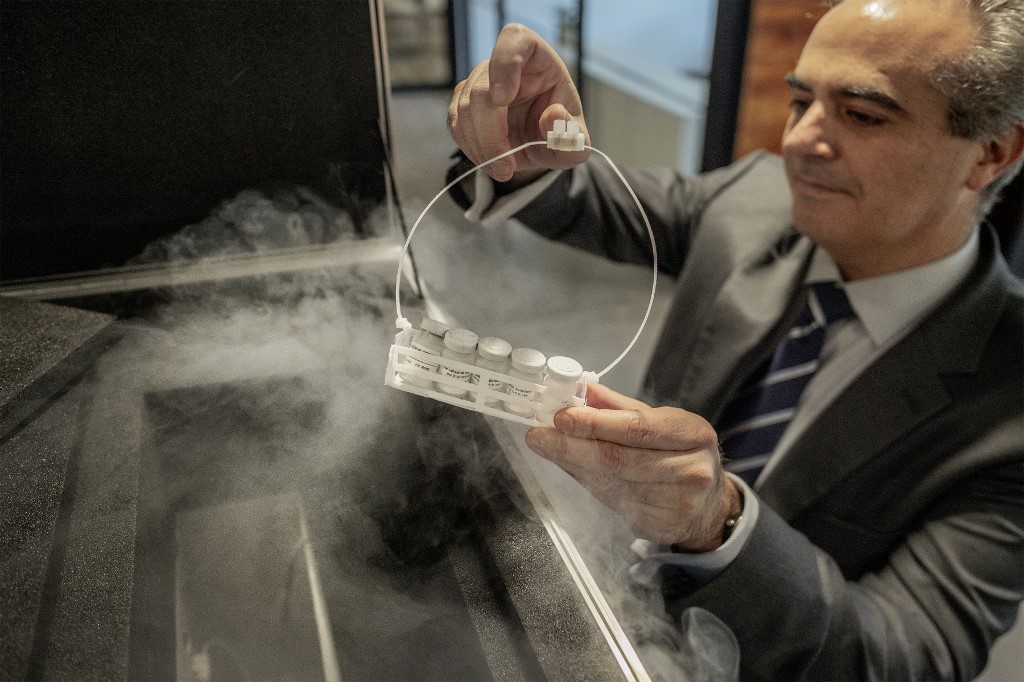
“This has been designed to be robust and rugged,” he told AFP.
“It has been designed for the field. You can kick it, you can drop it, you can leave it in the sun, it doesn’t care, it’s going to operate until it runs out of cryogen,” said Marani.
© Agence France-Presse

